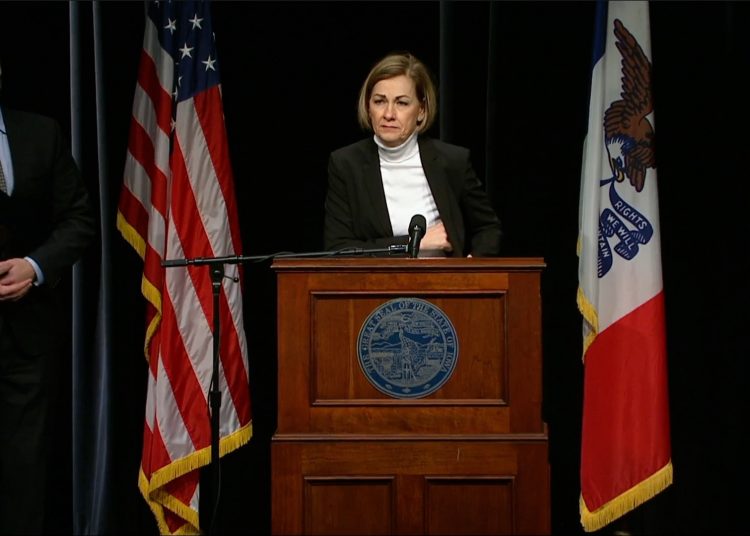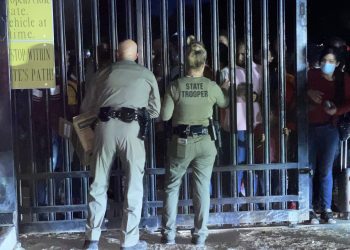DES MOINES, Iowa – On Monday, Gov. Kim Reynolds signed SF 413, a bill that makes significant changes to Iowa’s election law, including reducing Election Day voting hours and shortening the early voting period. The Iowa Legislature passed the bill along party lines in February.
The new law reduces Election Day voting in primary and general elections by one hour. Polls will close at 8:00 p.m. instead of 9:00 p.m. Voters can not request absentee ballots until 70 days before the election instead of 120 days, and the early voting period is reduced from 29 days to 20 days.
Also, absentee ballots now have to arrive at the county auditor by the close of business on the day of the election. The new law also prohibits “ballot harvesting.” Which is ballot collection by third-party organizations that do not have an established relationship with the voter. According to the new law, only immediate family members, household residents, or caretakers can return an absentee ballot on behalf of a voter.
The law also prohibits county auditors from sending out absentee ballot applications unless they are requested or set up satellite voting locations unless residents petition for them. Counties can only have one absentee ballot drop box inside or within proximity to the county auditor’s office that is accessible, secure, and monitored by video surveillance. County auditors are also now required to send a notice to and mark inactive voters who did not vote in the most recent general election and who did not report a change of address or register again in order to maintain the voter database. The law also creates new criminal charges for county auditors that disobey Iowa’s election rules and civil penalties for technical violations.
The law also increases the number of signatures required for nominations by petitions, increases the number of attendees non-party political organizations have to have at nominating conventions, and prohibits candidates who ran in a party primary from running as an independent candidate in the general election.
“It’s our duty and responsibility to protect the integrity of every election,” Reynolds said in a released statement. “All of these additional steps promote more transparency and accountability, giving Iowans even greater confidence to cast their ballot.”
The new law is likely to have legal challenges on several fronts.
















